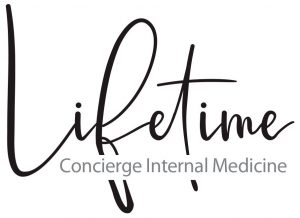Measles cases are on the rise with outbreaks occurring in multiple states in the U.S. We wanted to provide updated guidance from our office to help answer some questions about measles, immunity, and vaccination recommendations.
Quick facts on measles
- Measles is a highly contagious viral disease transmitted by respiratory droplets and airborne spread from an infected person’s cough, sneeze, and breathing. The measles virus can remain in the air and on infected surfaces for 2 hours.
- Initial symptoms can include fever, malaise, cough, runny rose, and red, watery eyes. Characteristic white spots inside the mouth (Koplik spots) can also appear, followed a few days later by a diffuse rash. Typically, this rash starts on the face and then spreads to the trunk and extremities.
- The average incubation period is 10-14 days from time of exposure to symptom onset. Symptoms typically last for 7-10 days for adults.
- Patients are considered contagious for 4 days before the rash starts and 4 days after the rash begins.
- Potential complications can occur in high-risk groups and include conditions like diarrhea, ear infection, pneumonia and other breathing complications, severe dehydration, encephalitis, a rare fatal degenerative disease years after the initial infection (subacute sclerosis panencephalitis), and possibly death.
- There is no specific treatment or antiviral medication for measles. Supportive care is recommended. Vaccination is the most effective way to prevent infection.
Vaccine guidance
We encourage all individuals born after 1957 to be up to date on their measles, mumps, rubella (MMR) vaccine with either one or two doses of LIVE vaccine unless they have “presumptive evidence of immunity.”
What is “presumptive evidence of immunity?”
- Written documentation of one or more doses of a live measles vaccine
- Lab evidence of immunity (positive antibodies)
- Lab confirmation of prior disease
- Birth before 1957
Higher risk scenarios for measles transmission:
Some adults born after 1957 without acceptable evidence of immunity may require 2 doses of vaccine. The below scenarios / settings pose a higher risk for measles transmission and 2 vaccines are recommended for these patients:
- People in college settings
- Healthcare personnel
- International travelers
- People exposed to measles during an outbreak
- People who reside or regularly spend time in neighborhoods or other areas experiencing measles activity
- People in close contact with immunocompromised people
- Adults who had received the inactivated measles vaccine (this is for adults who may have received the measles vaccine during the years 1963-1967 which was not effective.)
What is the MMR vaccine?
MMR is a live vaccine so there are additional precautions and considerations with live vaccines (see below.) It is considered highly effective in preventing measles. Two doses of measles vaccine are considered 97% effective, and one dose is considered 93% effective in preventing measles. Generally, it is given around 12-15 months of age and again at age 4-6 (before school entry.)
Our office does NOT carry the MMR vaccine. It is given at local pharmacies. If you need 2 doses of the vaccine, they should be given 28 days apart. You do not need a prescription to obtain the MMR vaccine.
There is no recommendation for a 3rd dose of MMR vaccine during a measles outbreak.
After vaccination, it is NOT necessary to test for antibodies to confirm immunity.
Contraindications to MMR vaccination
- Severe allergic reaction to vaccine component or following a prior dose
- Severe immunocompromise
- Systemic high-dose corticosteroid therapy for 14 days or more
- HIV infection
- Family history of congenital or heredity immunodeficiency in first-degree relatives
- Pregnancy or attempting to get pregnant
Precautions for vaccination
- Moderate or severe acute illness
- Alpha-gal allergy (consult with physician)
- Receipt of antibody-containing blood products (wait 3 to 11 months to vaccinate)
- History of thrombocytopenic purpura or thrombocytopenia
- Need for tuberculin skin testing or interferon-gamma release assay testing (because it can give a false negative tuberculosis screening test result)
EXPOSURE
If you think you have been exposed to measles, please call ahead to notify the team that you may have been exposed and do not immediately come to the office. We will call the local health department. This ensures protection of other patients and team members.
RECOMMENDATIONS
Patients born prior to 1957 were likely exposed to measles as children and are considered to have natural immunity. It is NOT necessary to get revaccinated or test for antibodies.
Adults who received the MMR vaccine between 1963 and 1967 may NOT have sufficient protection, because the measles vaccine they might have received is now considered less effective. These patients would benefit from either getting one or 2 doses of the MMR vaccine.
People vaccinated between 1968 and 1989, may have received only 1 dose of the measles vaccine instead of the 2 doses that are standard today. One dose is considered highly effective and should provide protection, but there are instances where patients may benefit from a booster (see above section on “Higher Risk Scenarios for Measles Transmission). Some patients may opt to get a 2nd dose if there are no contraindications.
BOTTOM LINE
For some patients (esp. those born before 1957), no further action is needed.
For others, a blood test may be helpful to confirm immunity. For those patients, if titers are low, then one or two doses of the vaccine may be appropriate based on risk for exposures.
For other patients, skipping the blood test completely and getting an additional booster may make the most sense.
As always, if you have any questions or concerns regarding your individual protection and needs, it is best to send your physician a message through the portal and we are happy to help provide guidance.

